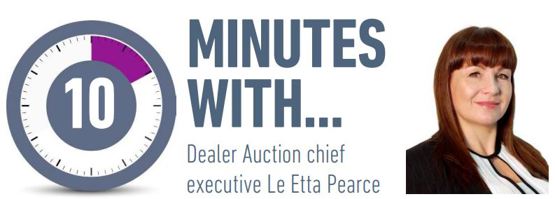 Dealer Auction chief executive Le Etta Pearce was interviewed by AM as 2022 drew to a close and revealed consumer-sourced stock is supplementing the trade-to-trade stock as dealers clamour for the right used cars for their forecourts.
Dealer Auction chief executive Le Etta Pearce was interviewed by AM as 2022 drew to a close and revealed consumer-sourced stock is supplementing the trade-to-trade stock as dealers clamour for the right used cars for their forecourts.
How did your career bring you to your current role?
I’ve been in the automotive industry 20-something years. I was in fashion previously and Ralph Lauren was one of my clients, so I spent a lot of time in New York. I wanted a change and after that I made my first move into the sector, working with Ford on an aftersales project in the north of England. That was in the late ’90s and I’ve never left the sector. From there, I went to a start-up called Real Time Communications. Cox Automotive acquired the business in 2007. I worked for that business until 2014 when I became sales director for Auto Trader.
There was a lot of talk about a joint venture and (then Auto Trader CEO) Trevor Mather asked if I’d consider running it. I had worked with Michael Buxton (president, Cox Automotive International) and knew the people on both sides of the business, so they felt like tried and tested relationships.
What do you see as the strength of Dealer Auction compared with other used car stock sources?
Dealer Auction is an agnostic marketplace. It amalgamates stock for various sources. We want to bring the largest volume of stock into one place and to do that you need to aggregate. The old dealerauction.com business was very much supplied by franchised retailers selling their part-exchange stock. We now have closed network capability for our OEM partners – they include Renault, Nissan and MG and we’re working with VW on its dealer-to-dealer trading portal and business from fleet and rental partners.
Beyond that we have EV partners, independents trading their part-exchange and over-age stock and, increasingly, we’re working with Auto Trader to offer consumer purchased vehicles. Most vehicles are still going from franchised retailers into independents, but OEM and captive sources account for around 20% of business, then the Auto Trader consumer stock around 10%, with fleet and rental making up the rest.
What is the make-up of the Dealer Auction customer base?
It’s around 58% independent and 42% franchised. We have standards that buyers and sellers have to go through to ensure they are a motor trader and if we don’t feel someone is abiding by our Ts and Cs we will block them. There are subscriptions to the platform and that’s really to give access. After that, customers only pay once there has been a successful transaction. Buyer fees range from £10 to £160.
Is Dealer Auction agnostic from a stock funding perspective?
We have a link to NextGear. A number of our customers have stocking lines, and we help them utilise that with payments directly in the platform. It’s not an exclusive integration, though. With choice being our main priority, alongside a top-notch buying experience, we’re always looking at how to add value to the platform. As such, we’ve had conversations with a number of other finance providers, but those have not led to an activation as yet.
How have the sector’s stock shortages affected Dealer Auction?
Franchised retailers are retaining more of their part-exchange stock and businesses have had to adjust their mix as a result. We’ve been able to supplement that with an increase in consumer sourced stock via Auto Trader. The C2C transaction is doing nothing for the dealer, of course. They get nothing out of that deal; they don’t get to touch the car and they don’t benefit from any aftersales opportunity. This year (2022), we expect to transact around 80,000 vehicles.
More than 250,000 vehicles have been sold via the Dealer Auction platform (since the start of 2020) and that’s in excess of £1 billion-worth in the metal. The key metric is how much profit we have helped to deliver for our customers, and we think we’ve helped generate more than £47 million over the same period. We’re also conscious that the buyers are able to generate a strong margin. If you’re not able to balance that out they are not going to come to you to source their stock.
To what extent is Dealer Auction’s workforce separate from that of Auto Trader and Cox Automotive?
Our tech team still resides in the Auto Trader offices. All our infrastructure is based on and supported by Auto Trader, along with the connection it has with consumers and its data. Our operations team is based in Leicester, and we’ve opened new offices in the past 12 months after bringing together the Dealer Auction and Manheim Online teams. We now have just less than 60 staff. It’s a small team, but we don’t manage the metal, so we don’t have the overheads and logistics challenges that other stock sources do.
That helps us to offer competitive rates. We have teams that will make sure that imagery and descriptions are up to standard. Why would you put less effort into selling a trade car than one to a retail customer? It doesn’t really matter if a vehicle has £600 of damage, as long as that is described by the seller. If something turns out to not be as described then our customer services team is there to help arbitrate.

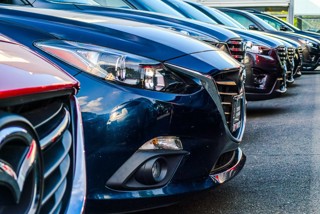
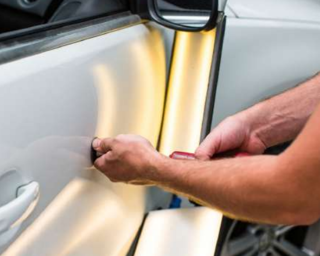

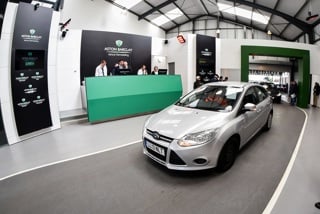
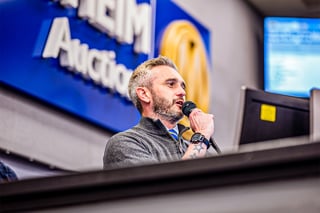












Login to comment
Comments
No comments have been made yet.